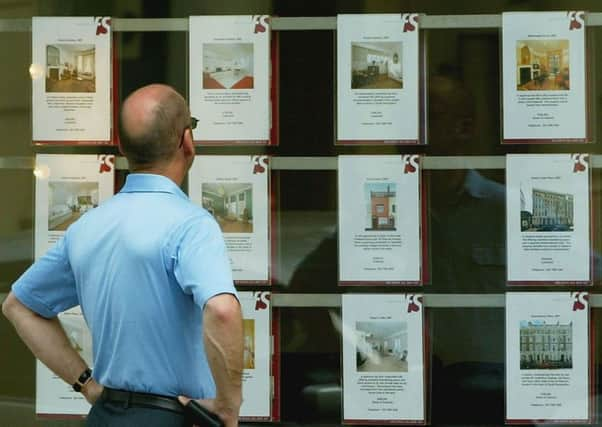David Alexander: Downsizing tax break could lift market
This article contains affiliate links. We may earn a small commission on items purchased through this article, but that does not affect our editorial judgement.


The inflation-linked guarantee on their state pensions is criticised as a burden on taxpayers; they are said to be doing younger people out of jobs by selfishly refusing to take retirement; and within a few more years they will be accused of being an increasing burden on the NHS (nothing to do, of course, with three million newcomers to the country, with their own healthcare requirements, since the start of the century).
Some also admonish pensioners still living in large villas whose adult children have flown the nest for not making a greater effort to move to smaller accommodation and therefore free up much-needed living space for younger families.
Advertisement
Hide AdAdvertisement
Hide Ad• READ MORE: Wealthy ‘shunning Scotland’ due to high property tax
The problem is that for older home-owners to downsize there needs to be a sufficient supply of “upsizers” and of this there is a glaring lack in Scotland thanks directly to government policy. Upsizing (and with it downsizing) is continuing to take place, but for properties with a price tag above circa half a million pounds (albeit with some regional variations) the pace has slowed to such an extent that this part of the market is almost marking time.
A house purchase of £800,000 is hit with a land and buildings transaction tax (LBTT) payment of £54,350 (over £24,000 more than for a similarly-priced property in England). As a result any potential buyer faced with such a levy on top of the purchase price is likely to hesitate… and (if they have sufficient space) take a decision to improve rather than move.
The result in Edinburgh has seen a slump in people living in middle-market homes trading up either within the city itself or moving to sought-after locations along the East Lothian coast. For Glaswegians, LBTT is a deterrent to upsizing to popular upmarket commuting villages like Lochwinnoch or Kilmacolm in rural Renfrewshire.
Warnings that the rates of LBTT would have a dampening effect on upper-market purchases were ignored by the Holyrood Government; that this has happened (and total income from residential property transactions has declined as a result) has still not persuaded it to budge.
So if the Government will not change its mind on the principle of what it sees as a “progressive” property tax, perhaps it might consider some modifications as a means of kick-starting the market (and, by implication, its own tax revenues).
One option could be to make transactions where one party was upsizing and the other downsizing free of tax, or at least subject to a lower rate. It is not a fanciful idea, because something similar was proposed two years ago by Nigel Wilson, chief executive of insurance major Legal & General.
Advertisement
Hide AdAdvertisement
Hide AdStrict conditions would be needed to ensure that a regulation introduced to improve social mobility did not turn into a tax-avoidance scam; in each case vendors would need to be of pensionable age and retired.
Left-leaning politicians may balk at the idea of a tax break that benefits buyers who are affluent, middle-class professionals and pensioner vendors likely to realise a substantial cash sum from a sale.
However this is not about helping “the rich” but rather about oiling the wheels of a market somewhat in need of some additional traction. If middle-market home-owners are taxed out of trading up, where does that leave the lower rungs of the property ladder – and those wishing to upgrade from a semi-detached to a detached house or from a flat to a place with its own “back and front door”?
Since the creation of LBTT, anyone buying property at or below £325,000 has actually paid less than would have been charged in stamp duty under the previous regime. Unfortunately this financial leg-up is not much good to aspirational young home-owners if their choice is limited by a logjam further up the market.
• David Alexander is managing director of DJ Alexander